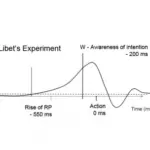Time, whether we like it or not, is a constant variable, joint and parallel to human experience. This constant flow accompanies us from the first moment of our life until it comes to an end; It is an undeniable reality of everyone’s life, and it is in a way the reason why life has meaning. However, as we advance in life and get older, time becomes a factor that generates worries, concerns, and even fears.
Who has not at some point felt the pressure of the clock, the marks on the calendar that remind us of the passing of the years, or the weight of social expectations about how we should be and what we should achieve at certain ages? Youth and vitality are always presented as a celebration, while aging is sometimes understood as a taboo and negative topic.
In this article we will seek to give the passage of time the opposite form of taboo. Acceptance of the passage of time It makes us experience it as a vital and normal part of the human experience. All people will feel the effects of the passage of time and it is through its development and its consequences that we develop in life and adapt to all its situations.
What does the passage of time mean?
Time, in its most basic essence, is a fundamental dimension in which we all exist. From birth to death, we move along this continuous line that is time. However, although time is a constant in our lives, its meaning and perception vary drastically as we age and accumulate experiences. In youth, time seems to stretch infinitely toward the horizon, filled with limitless promise and opportunity. The weeks pass as if they were months, and the years, as if they were decades. Life is lived with an intensity that often translates into the feeling that we are invulnerable to the inexorable passage of time
However, as we move forward in life, time begins to take on a new dimension. The days and months seem to speed up, and suddenly, we find ourselves looking back, amazed at how much has passed. The perception of time becomes relative; A year for a child can seem like an eternity, while for an adult, it is just another chapter in the story of their lives.
The passage of time is also reflected in our relationship with the past and the future. In youth, the future is a blank canvas full of exciting possibilities. However, as we age, we often find ourselves looking back, reflecting on our past choices and experiences. Time, in this sense, becomes a mirror that reflects our decisions and actions, both the right ones and those we might regret.
Emotions associated with aging
To understand the fear of the passage of time more deeply, it is important to take into account the emotions that are most associated with aging and experiencing the speed of time. We know that aging is a natural process, but it is not without challenges. As we grow, we encounter a range of emotions that can be complicated to work through and can worsen our feelings over time. Some of them are:
1. Nostalgia
As we look back in time and at our lives, we remember special moments, dear people who are no longer by our side, and experiences that marked our life and trajectory. Nostalgia can be bittersweet but it also helps us remember and keep in mind the richness of our experiences.
2. Fear of aging
It is very common to be afraid of aging; Concerns about health, loss of vitality and dependency can become sources of anxiety This can lead to denial and seeking to delay the aging process, rather than accepting it.
3. Social pressure
It is common to place unrealistic social expectations and standards on how we should be, be, and behave as we age. Social pressure can lead to insecurity and dissatisfaction with oneself, especially in a culture obsessed with youth and beauty
4. Acceptance
Fortunately, acceptance of aging is an emotion that can also help us flourish with the experience. As we mature, we can learn to value our experiences more, and forget the importance of physicality and youthful vitality.
The importance of accepting the passage of time
Accepting the passage of time does not mean opting for resignation or renunciation of life; rather it implies embrace the reality of life in all its stages and find beauty and meaning in each of them As we continue on this journey, it is essential to remember that growing older gives us the opportunity to grow, learn, and appreciate the richness of life in its entirety. Some reasons why accepting the passage of time is essential are:
1. Stress reduction
Resistance to aging and the unsuccessful search for its denial can chronically generate stress. Constantly worrying about maintaining a youthful appearance or meeting certain social expectations can have a detrimental effect on our mental and physical health. Accepting the passage of time reduces this stress and allows us to live in a more relaxed way.
2. Greater self-acceptance
As we age, it is common to worry about changes in our physical appearance. However, acceptance allows us to recognize that beauty and value are not exclusively linked to youth By accepting who we are at each stage of life, we cultivate greater self-acceptance and self-esteem.
3. Focus on “what is important”
Accepting the passage of time frees us from constant worry about appearance and allows us to focus on what really matters in life: our relationships, our passions, our experiences, and our personal growth.
4. Resilience
Acceptance of aging makes us more resistant to the challenges that life presents us. As we face inevitable loss and change, we develop a greater ability to adapt and overcome obstacles.
5. Promotion of wisdom
Aging involves an accumulation of experiences and knowledge Accepting the passage of time allows us to embrace this wisdom and share it with younger generations. This contributes to a sense of purpose and contribution to society.
6. Greater fulfillment in life
By stopping resisting the passage of time and embracing it as a natural part of life, we find greater fulfillment and satisfaction in each day. Every moment becomes more valuable when we experience it fully.
Tips to accept the passage of time
Now that we understand the importance of accepting the passage of time, it is time to explore practical strategies and tips to embrace this process in a positive and constructive way. In conclusion, here are some suggestions that will help you cultivate a healthier attitude towards aging and the passage of time:
1. Cultivate a positive attitude
Maintain a positive attitude towards aging. Instead of focusing on physical limitations, focus on the opportunities each stage offers Surround yourself with people who share this positive mindset.
2. Health care
Maintaining good physical and mental health is essential for healthy aging. Regular exercise, a balanced diet, and regular doctor visits can contribute significantly to your well-being as you age.
3. Set objectives and goals
Establish personal goals and objectives throughout life. This will help you maintain a sense of purpose and direction, no matter your age Continuous learning and pursuing new interests are crucial.
4. Develop meaningful relationships
Relationships with friends and family are an invaluable resource as we age. Invest time in maintaining and strengthening these relationships. Social support can have a positive impact on your emotional well-being.
5. Learn to let go
Aging involves leaving behind certain stages of life. Learn to accept the loss of certain abilities or roles with grace and understanding This will allow you to open yourself to new experiences and opportunities.
6. Self-care
Take time to take care of yourself. Find activities that relax you and bring you joy, whether it’s reading, pursuing a hobby, meditating, or enjoying outdoor activities.
7. Contribution and service
Contributing to the community or helping others can give you a sense of purpose and satisfaction. Volunteering and charitable activities are great ways to bring additional meaning to your life.
8. Embrace the experience
Appreciate the wealth of experiences you have accumulated over the years Your life is full of learnings, triumphs, and challenges that have shaped you into who you are today.
9. The beauty of age
Remember that beauty is not tied to youth. The confidence and authenticity that come with age can be equally attractive. Instead of fighting wrinkles and gray hair, embrace the uniqueness that each wrinkle represents.









